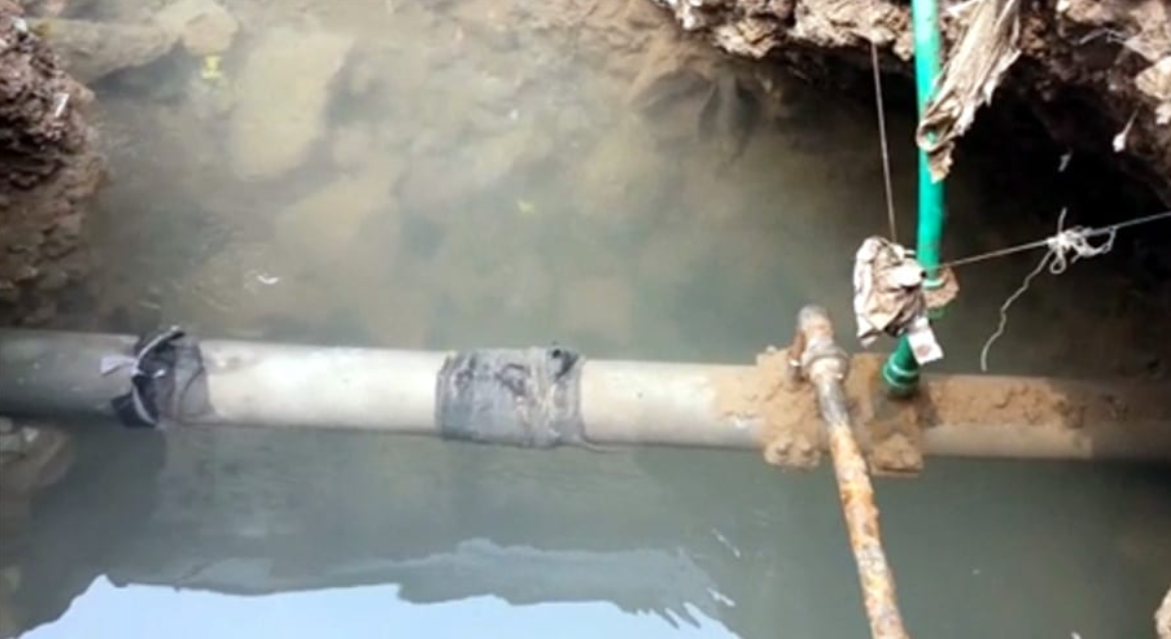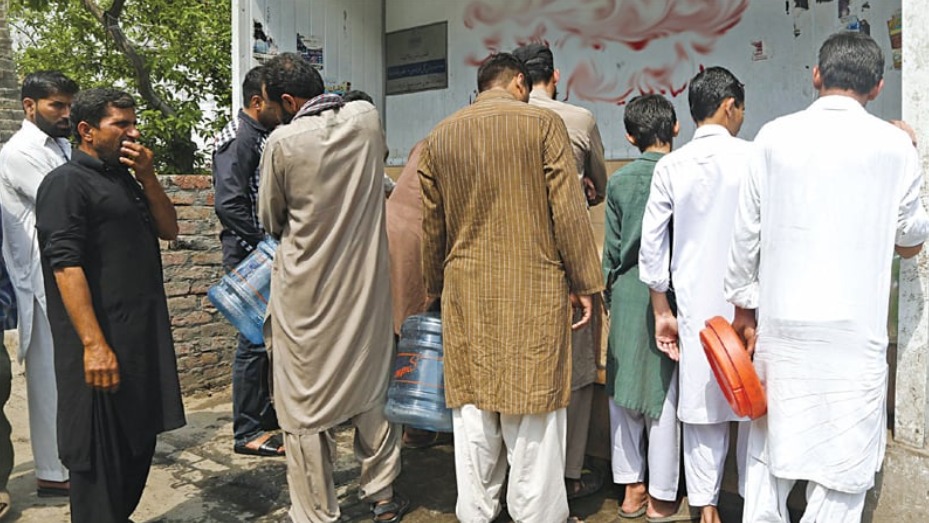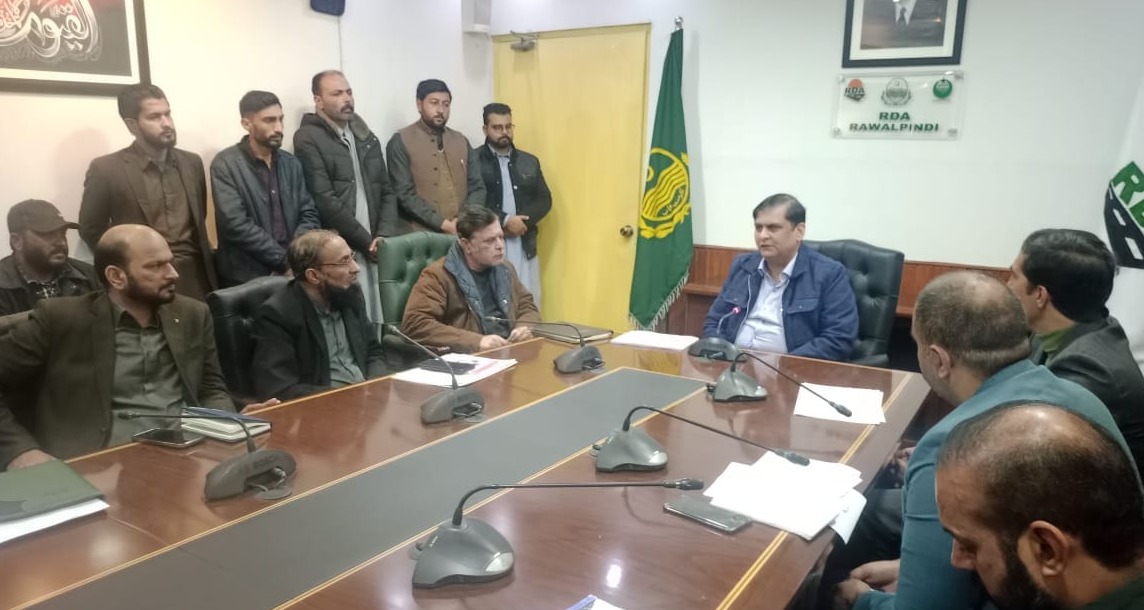Rawalpindi Calls on WASA to Address Water Scarcity
Azhar Siddique
Rawalpindi: Amidst an unchecked population influx and worsening water scarcity, Rawalpindi residents are urgently calling upon civic authorities to proactively prevent an impending water shortage.
The perennial struggle, particularly felt in congested areas each summer, prompts residents to highlight the issue, urging the Water and Sanitation Agency (WASA) to address the problem well before the onset of the summer season.
People living in Dhoke Kala Khan, Qayyumabad, Muslim Town, Sadiqabad, Committee Chowk, Shah Khalid Colony, Bagh Sardaran, Adiala Road, Defence Road, New Lalazar, Morgah, Kalyal, Munawar Colony, Asghar Mall, City Saddar Road, Kohati Bazaar, Peoples Colony, Adiala Road, and Dhoke Syedan Road are stated to be the worst hit communities during peak season every year.
Faulty Water Lines
Although all 480 WASA tube wells are stated to be operating across the city, the agency falls short of meeting the water needs of the public, as some of these tube wells need repair or face water sucking issues as the water table drops to 400 to 600 feet in certain areas.
Read More:https://thepenpk.com/faulty-water-pump-irks-jhanda-chichis-residents/
The WASA sometimes feels helpless to meet the water needs of a growing population, even after receiving 13 million gallons of water per day from Rawal Dam and six million gallons from Khanpur Dam.
This situation compels consumers to buy tanker water, who, in return, are becoming a mafia to exploit consumers by charging extra money for water supply.  Every summer we face water shortages, especially during peak season, said Amjad Ali, a resident of Muslim Town. Although the authorities claim to supply water uninterrupted, our needs remain unmet.
Every summer we face water shortages, especially during peak season, said Amjad Ali, a resident of Muslim Town. Although the authorities claim to supply water uninterrupted, our needs remain unmet.
He mentioned issues like ruptured pipelines, low-capacity tube wells, and wastage of water by residents. We are not blaming WASA alone, as water provision and its conservation are shared responsibilities.
But it needs certain mechanisms to address this issue. We desire civic agencies to address these issues prior to the upcoming summer, Ali said.
Residents from various localities, including Ariya Mohallah, Dhoke Munshi, Rehmatabad, Noorani Mohallah, Banaris Colony Kachi Abadi, Dhoke Dalal Khan, Walyat Homes, and Mumtaz Colony, echo similar grievances, expressed concerns about the prevailing situation. They collectively urged the implementation of a practical and effective strategy to address the persistent issue of water scarcity in their areas.
Residents’ Struggle
Every summer, this phenomenon repeats. Despite the claims of authorities, many of us had to wait for water for hours or even days, said Naeem Ahmed, a resident of Ariya Mohalla.
Whether it is a shortage of resources or a capacity issue, we are the ultimate victims, he said. This situation compels residents to buy tanker water, and we have to pay twice. Once to WASA and then to private tanker operators, who charge us as per their will, Ahmed deplored. Rashid Mahmood, another resident, has specifically drawn the attention of the district administration towards massive and unchecked charging by private water tanker operators.
Rashid Mahmood, another resident, has specifically drawn the attention of the district administration towards massive and unchecked charging by private water tanker operators.
These tanker operators take full advantage of the water shortage during the summer, he said, and claimed that they charge Rs 3000 to Rs 5000 for each tanker during the summer, Mahmood said.
Therefore, he said, the concerned authorities must not only enhance water supply capacity but also devise some mechanism to set the water tanker price.
As the water shortage is becoming a country-wide issue, some efficient strategies and strict measures are urgently required for judicious water supply, its conservation, and reigning in the tanker mafia to bring some respite to the consumers.
Although many residents resorted to digging wells or boring, others, not having resources to spend on this activity, are left at the mercy of WASA or the tanker operators.
Authorities’ Pledge
Commenting on this situation Managing Director of Water and Sanitation Agency WASA, Muhammad Tanveer, claimed to be making all-out efforts to address this issue. “We are on it. We try to ensure an uninterrupted water supply”.
Even if there is a shortage in any area, it is met by supplying water through WASA water tankers, Tanveer claimed. In addition to ensuring the timely supply of pipe water, we also ensure that our staff fully cooperates with citizens. Assistant Director (Water Supply) at WASA, Mohammad Ahmed, and Sub Engineer Water Supply, Mohammad Tufail, also claimed that there was no water supply issue in Rawalpindi.
Assistant Director (Water Supply) at WASA, Mohammad Ahmed, and Sub Engineer Water Supply, Mohammad Tufail, also claimed that there was no water supply issue in Rawalpindi.
We are cognizant of the situation and doing a lot to improve the water supply. We assure that the situation improves for Rawalpindi citizens during the upcoming summer, the officials stated.
Even if we agree with their claim of no water shortage in the city, then why do we see a lot of private tankers roaming around to supply water in residential areas?
Dadocha Dam Solution
Since Rawalpindi’s water shortage reaches 60 million gallons per day (MGD) during the peak summer season, the authorities believe that the construction of Dadocha Dam would help address this issue. Started after a delay of 13 years, on special directives of Caretaker Chief Minister Punjab Mohsin Naqvi, the dam would cost Rs 14 billion and provide 35 MGD of clean water to residents.
Started after a delay of 13 years, on special directives of Caretaker Chief Minister Punjab Mohsin Naqvi, the dam would cost Rs 14 billion and provide 35 MGD of clean water to residents.
Since water is a basic need for every citizen, the authorities must ponder evolving a workable and multi-pronged strategy for addressing this issue.
Checking water wastage would emerge as a major problem for the authorities in the days ahead, with the country already touching the international water scarcity benchmark.
The feature report was released by APP.

Comments are closed.